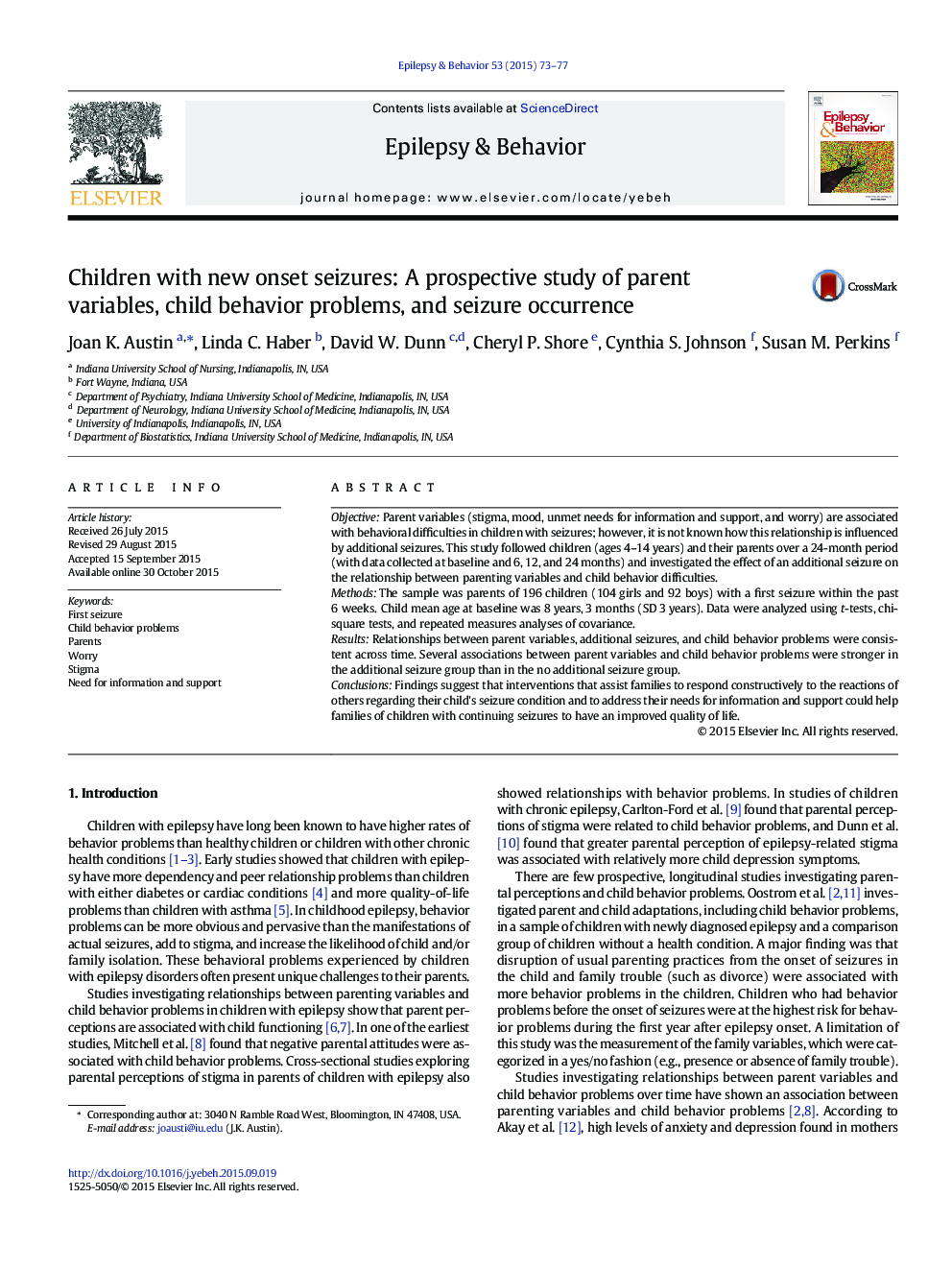| Article ID | Journal | Published Year | Pages | File Type |
|---|---|---|---|---|
| 6010298 | Epilepsy & Behavior | 2015 | 5 Pages |
â¢Parent stigma was more strongly associated with behavior problems when an additional seizure.â¢Parent needs were more strongly associated with behavior problems when an additional seizure.â¢Greater parent worry was associated with behavior problems with or without an additional seizure.
ObjectiveParent variables (stigma, mood, unmet needs for information and support, and worry) are associated with behavioral difficulties in children with seizures; however, it is not known how this relationship is influenced by additional seizures. This study followed children (ages 4-14Â years) and their parents over a 24-month period (with data collected at baseline and 6, 12, and 24Â months) and investigated the effect of an additional seizure on the relationship between parenting variables and child behavior difficulties.MethodsThe sample was parents of 196 children (104 girls and 92 boys) with a first seizure within the past 6Â weeks. Child mean age at baseline was 8Â years, 3Â months (SD 3Â years). Data were analyzed using t-tests, chi-square tests, and repeated measures analyses of covariance.ResultsRelationships between parent variables, additional seizures, and child behavior problems were consistent across time. Several associations between parent variables and child behavior problems were stronger in the additional seizure group than in the no additional seizure group.ConclusionsFindings suggest that interventions that assist families to respond constructively to the reactions of others regarding their child's seizure condition and to address their needs for information and support could help families of children with continuing seizures to have an improved quality of life.
